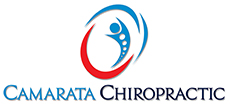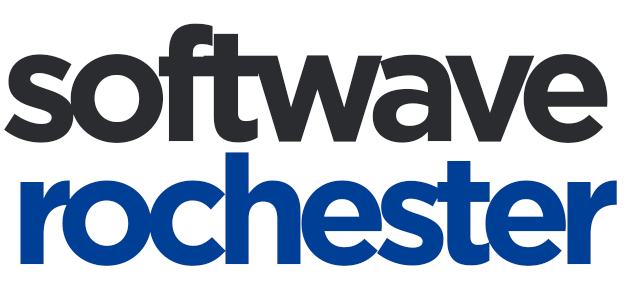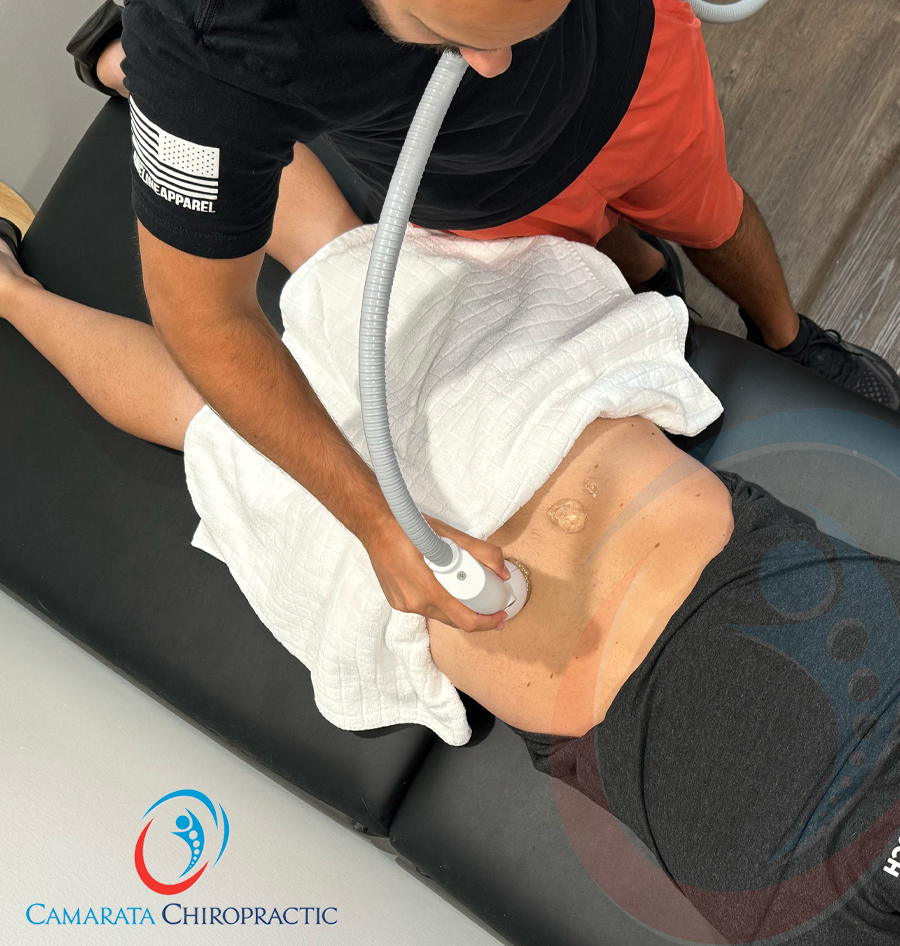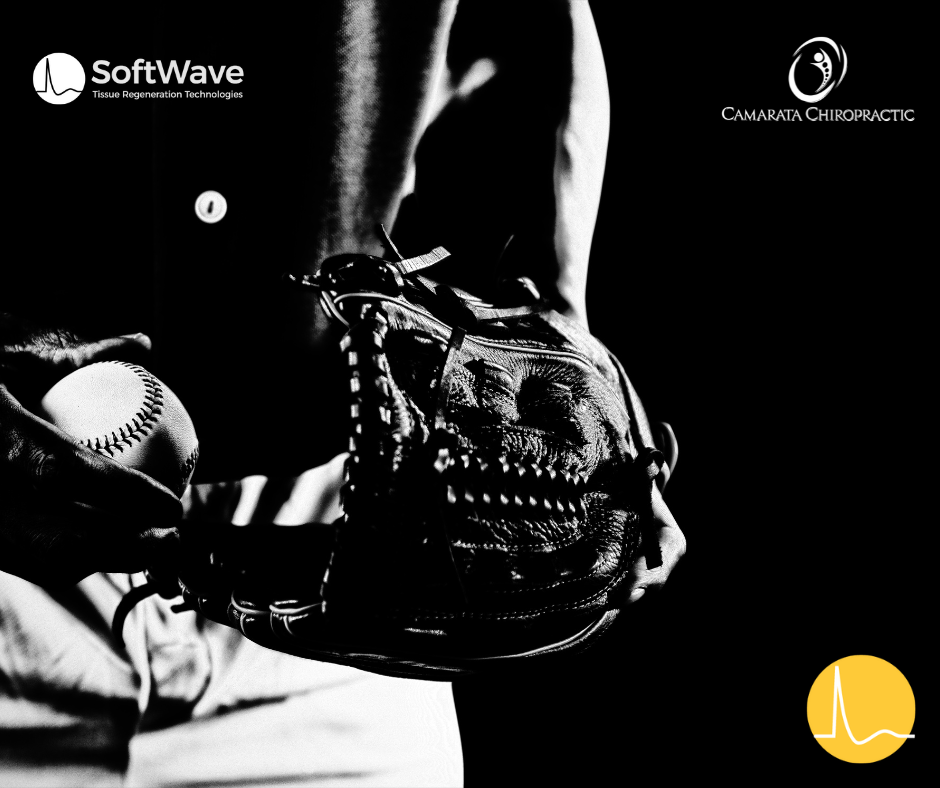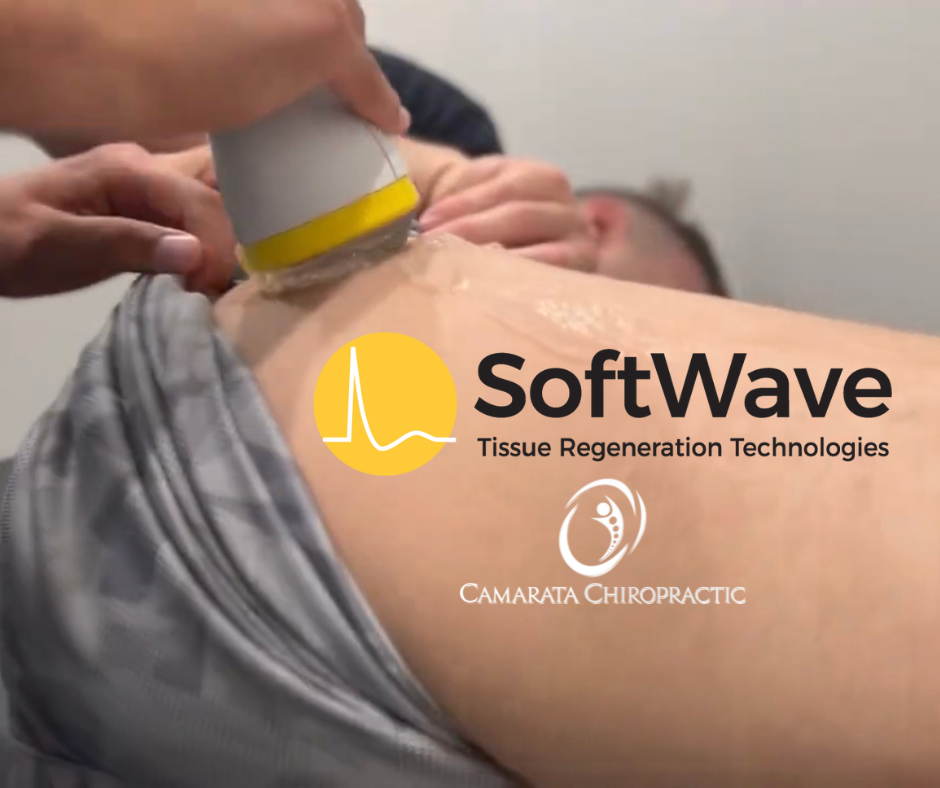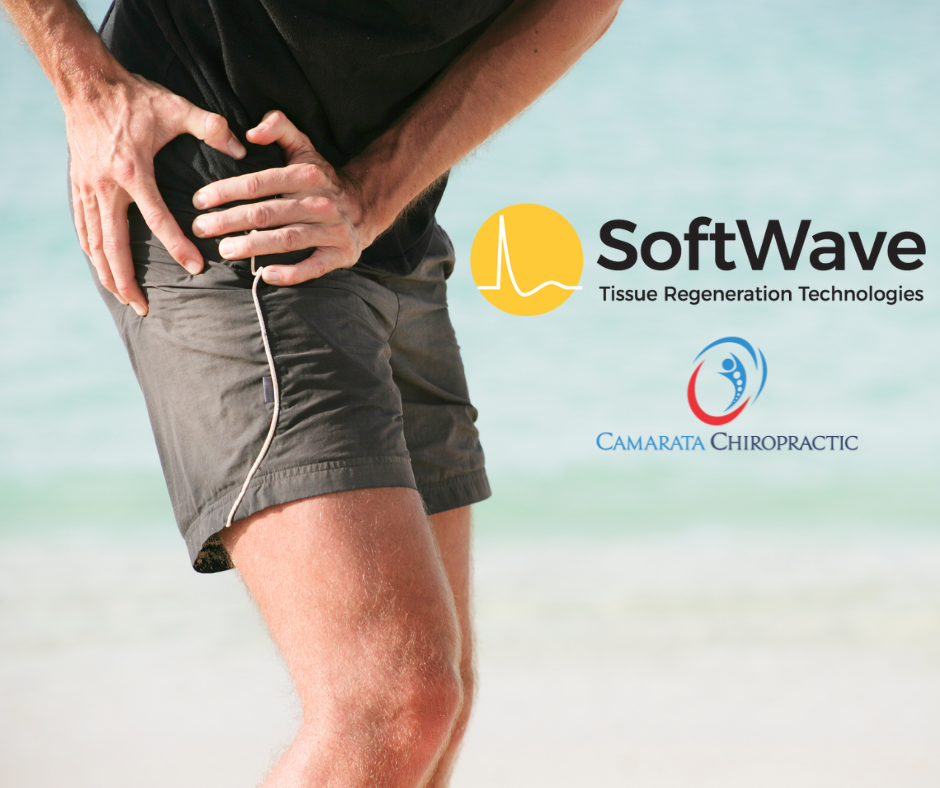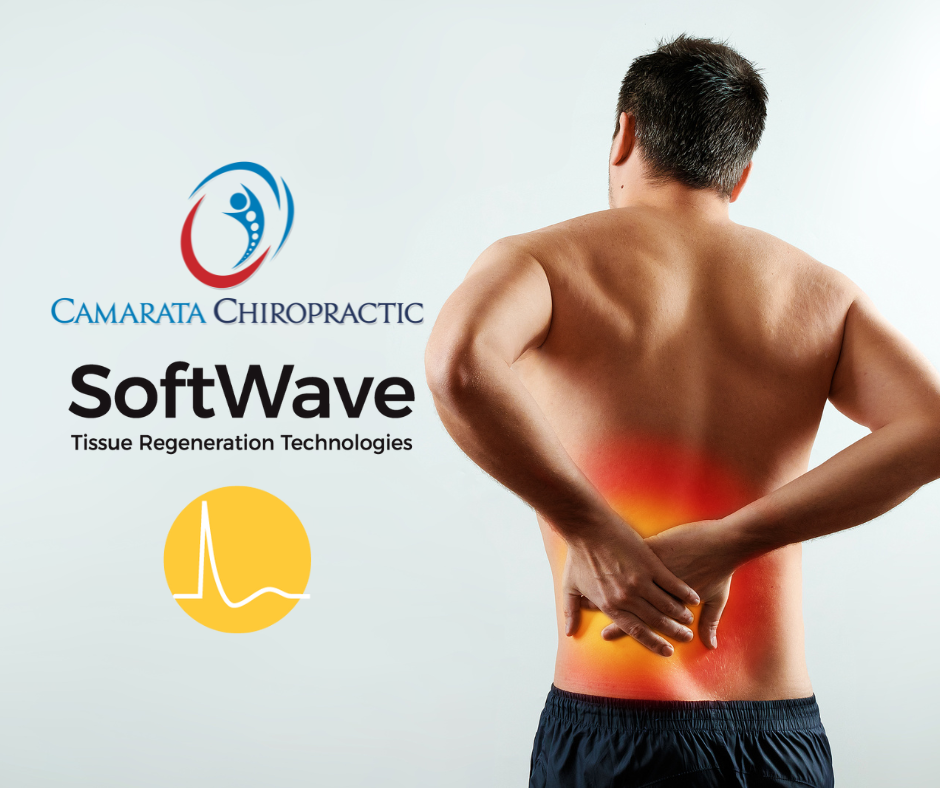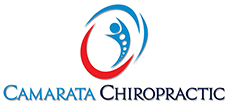Blog
Optimizing Recovery from MCL and LCL Injuries with SoftWave Therapy at Camarata Chiropractic & Wellness
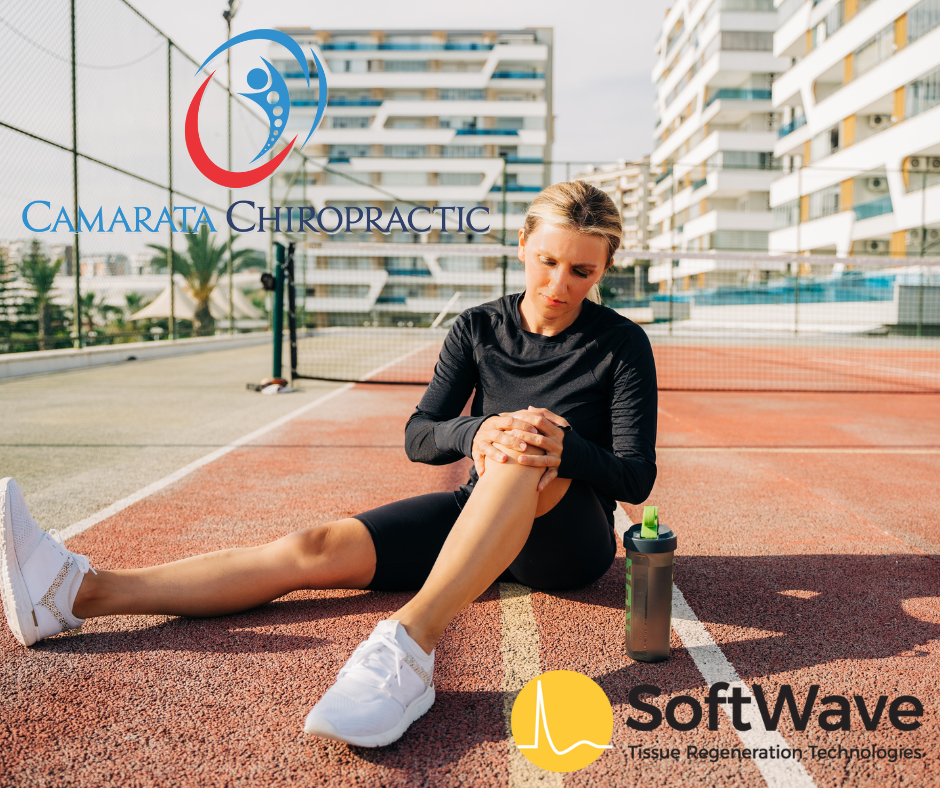
Injuries to the Medial Collateral Ligament (MCL) and Lateral Collateral Ligament (LCL) are common in sports that involve quick changes in direction, sudden stops, and physical contact. Athletes in sports such as football, soccer, basketball, and wrestling are particularly susceptible to these types of knee injuries. At Camarata Chiropractic & Wellness in Rochester, NY, Dr. Sam Camarata utilizes SoftWave Tissue Regeneration Technology (TRT) to enhance recovery, promote tissue repair and regeneration, and help athletes return to their sports and activities more robustly than ever.
Understanding MCL and LCL Injuries
Anatomy of the MCL and LCL
- Medial Collateral Ligament (MCL): Located on the inner side of the knee, the MCL connects the femur (thigh bone) to the tibia (shin bone). It helps stabilize the knee and prevents it from buckling inward.
- Lateral Collateral Ligament (LCL): Positioned on the outer side of the knee, the LCL connects the femur to the fibula (the smaller bone of the lower leg). It helps stabilize the knee and prevents it from buckling outward.
Causes of MCL and LCL Injuries
- MCL Injuries: Often caused by a direct blow to the outside of the knee, forcing the knee to bend inward. This can happen during contact sports like football or soccer, or from a sudden change in direction.
- LCL Injuries: Typically result from a blow to the inside of the knee, forcing the knee to bend outward. These injuries are less common but can occur in sports like skiing or during awkward landings in basketball.
Symptoms of MCL and LCL Injuries
- Pain and Tenderness: Localized pain along the ligament, especially when pressure is applied.
- Swelling and Bruising: Swelling around the knee joint, often accompanied by bruising.
- Instability: A feeling of the knee giving way or buckling during movement.
- Stiffness: Reduced range of motion and stiffness in the knee.
SoftWave TRT: Revolutionizing Ligament Injury Recovery
SoftWave Tissue Regeneration Technology (TRT) offers a non-surgical, non-injection treatment option for athletes suffering from MCL and LCL injuries. This advanced therapy utilizes electrohydraulic supersonic acoustic waves to promote healing at the cellular level, optimizing recovery and enhancing tissue repair and regeneration.
Benefits of SoftWave TRT for MCL and LCL Injuries
Accelerated Recovery SoftWave TRT accelerates the healing process, allowing athletes to return to their sports more quickly. By promoting the body’s natural repair mechanisms, SoftWave TRT reduces recovery time significantly.
Decreased Pain and Inflammation Chronic pain and inflammation can hinder rehabilitation. SoftWave TRT effectively targets the sources of pain and inflammation, providing relief that allows athletes to engage fully in their recovery.
Improved Blood Flow and Circulation Through angiogenesis, SoftWave TRT enhances blood flow to the injured ligaments. Improved circulation ensures that the tissues receive the necessary oxygen and nutrients for optimal healing.
Enhanced Tissue Repair and Regeneration SoftWave TRT activates and mobilizes the body’s stem cells, directing them to the site of injury. This promotes the repair and regeneration of the MCL and LCL, leading to stronger and more resilient ligaments.
Non-Surgical, Non-Injection Therapy SoftWave TRT provides a safe and effective alternative to invasive treatments. Avoiding the risks associated with surgery and injections, this therapy supports natural healing processes.
The Science Behind SoftWave Therapy
Angiogenesis: The formation of new blood vessels enhances circulation, critical for tissue health and repair.
Modulation of Inflammation: SoftWave TRT helps regulate the body’s inflammatory response, reducing swelling and pain.
Toll-Like Receptors: These receptors play a key role in immune response and tissue regeneration, aiding in the recovery process.
Growth Factors Release: SoftWave TRT stimulates the release of growth factors such as VEGF (Vascular Endothelial Growth Factor) and eNOS (endothelial Nitric Oxide Synthase), which are essential for vascular growth and tissue repair.
Stem Cell Activation and Migration: The therapy mobilizes the body’s stem cells to the injury site, promoting tissue regeneration and healing.
Success Stories from Camarata Chiropractic & Wellness
Dr. Sam Camarata and his team have achieved remarkable results with high-school and college athletes undergoing MCL and LCL rehab and recovery. By integrating SoftWave TRT into their rehabilitation programs, athletes experience:
- Better Outcomes: Enhanced healing and faster return to sport.
- Increased Strength and Stability: Stronger ligaments and improved joint stability.
- Improved Mobility: Greater range of motion for better performance.
- Optimized Healing and Recovery: Comprehensive recovery addressing both the injury and overall physical health.
Take the Next Step Towards Optimal Recovery
If you or someone you know is dealing with an MCL or LCL injury, consider the advanced healing benefits of SoftWave Therapy. Contact Dr. Sam Camarata and the team at Camarata Chiropractic & Wellness today at 585-617-4145, or visit us at 3237 Union St, North Chili, NY 14514, to schedule your SoftWave Discovery Day session. Experience how SoftWave TRT can transform MCL and LCL rehab and recovery, helping athletes return to their sports stronger and more resilient than ever.
Schedule SoftWave Therapy Online Here for Knee Pain Relief!
‹ Back
